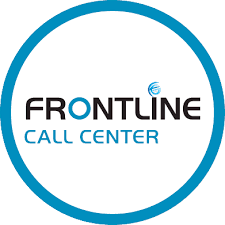Canada’s Supply Chain Act Has U.S. Impact: Are You in Compliance?
Fighting Against Forced Labor and Child Labor in Supply Chains Act
A Canadian law that aims to address exploitive labor practices in supply chains may apply to your business, even if it is not based in Canada.
By May 31, 2024, businesses — including public and private U.S. companies — that fall within the scope of the Fighting Against Forced Labor and Child Labor in Supply Chains Act (Act) must submit an annual report and responses to a questionnaire describing their efforts to prevent and reduce risks of forced and child labor in their supply chains, or they must indicate that no efforts have been undertaken.
Failure to provide the information could result in a fine of up to CAD $250,000 (USD $184,000) in addition to reputational damage, as the report is made public.
U.S. Businesses in Scope
The Act went into effect on January 1, 2024, and requires businesses to submit a report on their activities in the prior fiscal year to the Canadian government by May 31 of each year. U.S. businesses are subject to the Act if they meet the criteria below.
U.S. Businesses Subject to the Act
| The Act applies to entities1 that: | AND | Meet one of the two following requirements: |
|
|
The Act has broad application and has no prescribed threshold for the minimum value of goods that entities must produce or import in order for it to apply. Additionally, the thresholds for assets, revenue, and employee requirements are calculated based on consolidated financial statements and refer to global totals, so they are not restricted to those located, generated, or employed in Canada.
Requirements for Businesses
Each year, businesses in scope must submit an annual report that describes steps taken to prevent and reduce risks of forced and child labor, along with relevant supplementary information. If no efforts have been undertaken, this must also be disclosed. Entities must also fill out a related questionnaire.
Both the report and questionnaire must include information on the following activities:
- Steps taken to prevent and reduce risks of forced and child labor
- Business structure, activities, and supply chains
- Policies and due diligence processes related to forced and child labor
- Identification and management of forced and child labor risks
- Any remediation efforts taken in cases where forced or child labor has been identified
- Any measures to remediate income loss for the most vulnerable families as a result of activity changes
- Training provided on forced and child labor
- Policies and procedures used to assess the effectiveness of due diligence processes
The Act does not specify the level of detail needed for the information in the report, but businesses are expected to describe their concrete actions to address forced and child labor. These may include actions to map their supply chains and identify high-risk areas, develop and implement action plans for addressing forced and child labor, and engage with supply chain partners, among other activities.
The annual report must be submitted to the Canadian authorities, which will make it available to the public via an online register, and businesses are required to post their report in a prominent place on their website. Federal corporations must provide the report to their shareholders together with their financial statements.
Leading Due Diligence Practices
Supplier codes of conduct alone are insufficient to adequately protect against forced and child labor in supply chains. Best-in-class initiatives take a more proactive approach to identifying risks, holding suppliers accountable, and informing employees.
Businesses should consider the following as they develop their supply chain due diligence programs.
- Take a risk-based due diligence approach.
Businesses should conduct annual risk assessments to identify areas with increased risk of forced and child labor, then develop targeted policies and procedures for increasing visibility and risk management for those areas of their business.
High-risk elements of the supply chain may include specific supply regions, product types, and/or production methods. Companies may perform more frequent audits on these higher-risk portions of their supply chains, have supplemental supplier questionnaires and data requests for those areas, or conduct third-party validation of supplier-provided data to confirm accuracy.
- Cascade requirements beyond direct suppliers.
Leading businesses have contractual provisions requiring their suppliers to report on their own due diligence activities, providing transparency into production locations and identified risks. These supplier due diligence activities may include ESG-related standards and expectations that are cascaded to sub-suppliers.
Supplier agreements should include provisions requiring their direct suppliers to maintain up-to-date supply chain mapping information to support risk monitoring and management related to indirect suppliers. Compliance may require the use of third-party software solutions to document end-to-end supply chain mapping, which can also facilitate annual reports from direct suppliers that should be obtained to identify emerging risk areas or changes in supplier policies.
- Deploy internal training and controls.
Best-in-class programs do not stop at training purchasing staff on the indicators of forced labor. Instead, they go beyond basics and provide training on targeted issue areas, such as identifying potential risk areas, performing effective due diligence, inquiring into supplier policies, and navigating next steps with noncompliant suppliers.
These programs should be kept up to date on emerging risk areas and changing regulations to reduce the likelihood of engaging with high-risk suppliers. Internal training and controls specific to customs compliance are equally important. Businesses should maintain procedures for responding to government inquiries related to suspected forced and child labor in their supply chains. In conjunction with these efforts, relevant documentation, including purchase orders, bill of materials, import and export documentation, manifests, bills of lading, inventory records, and other evidence of no forced labor, must be retained.
Growing Legal Requirements
Canada’s Act is just one example of initiatives taken by various governments around the world related to the sustainability of supply chains. Putting effective sourcing and transparency processes in place can help businesses maintain compliance, reduce business risk, and prevent human rights violations.
BDO helps businesses assess the current state of their supply chain due diligence activities, fulfill reporting requirements, and further optimize their supply chain due diligence practices to mitigate risks.
Contact us to learn more about these services and supply chain requirements in other jurisdictions.
Copyright © 2024 BDO USA, P.C. All rights reserved. www.bdo.com
Written By
Ashley Hetrick – Principal, Sourcing & Supply Chain Segment Leader
Aurora Bardoneschi – Risk Advisory Director, Sustainability & ESG Services
Mathew Mermigousis – Customs & International Trade Services National Practice Leader



